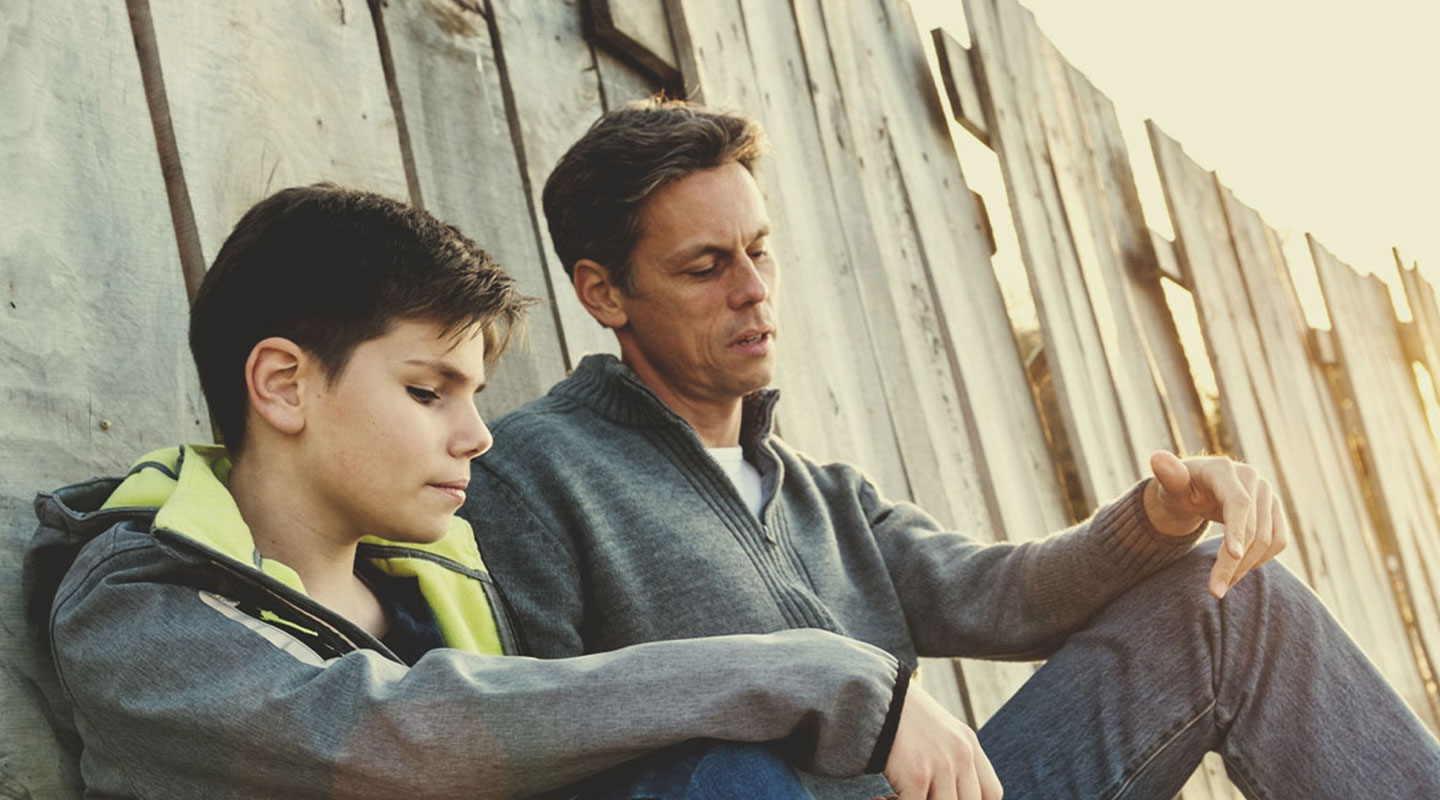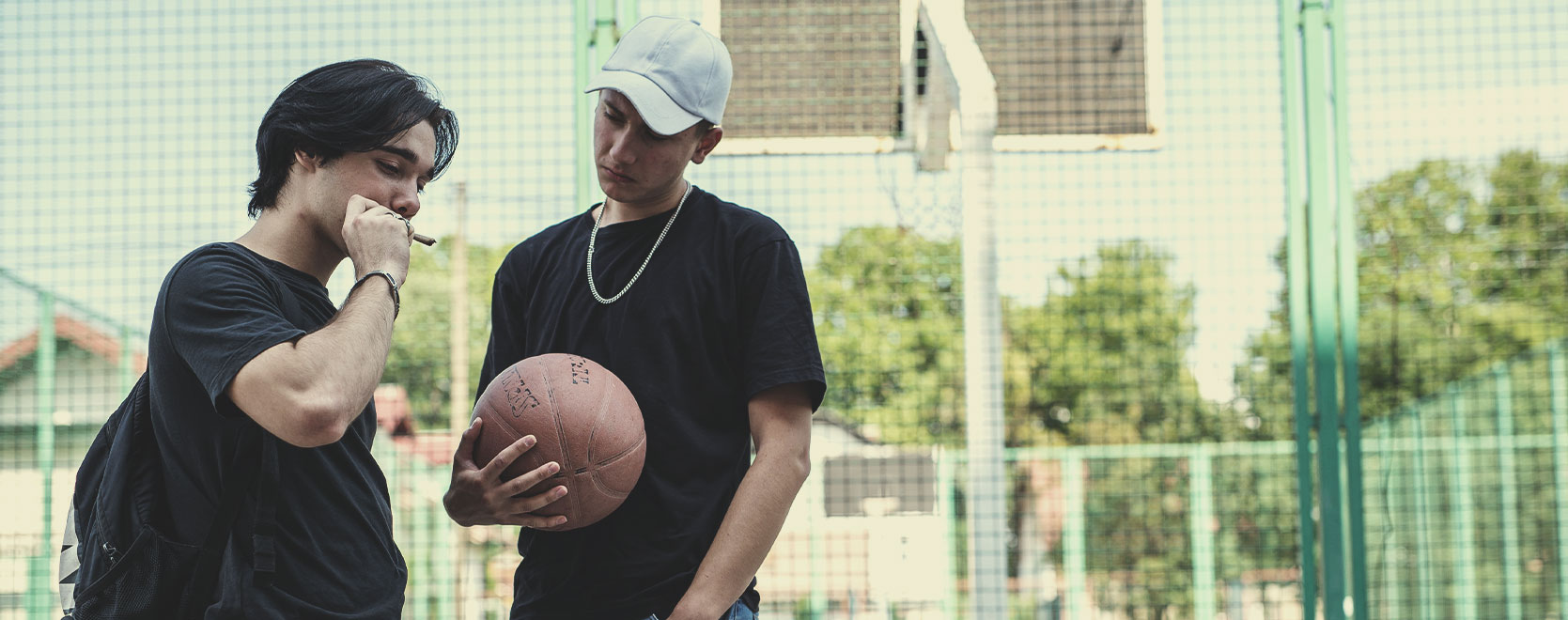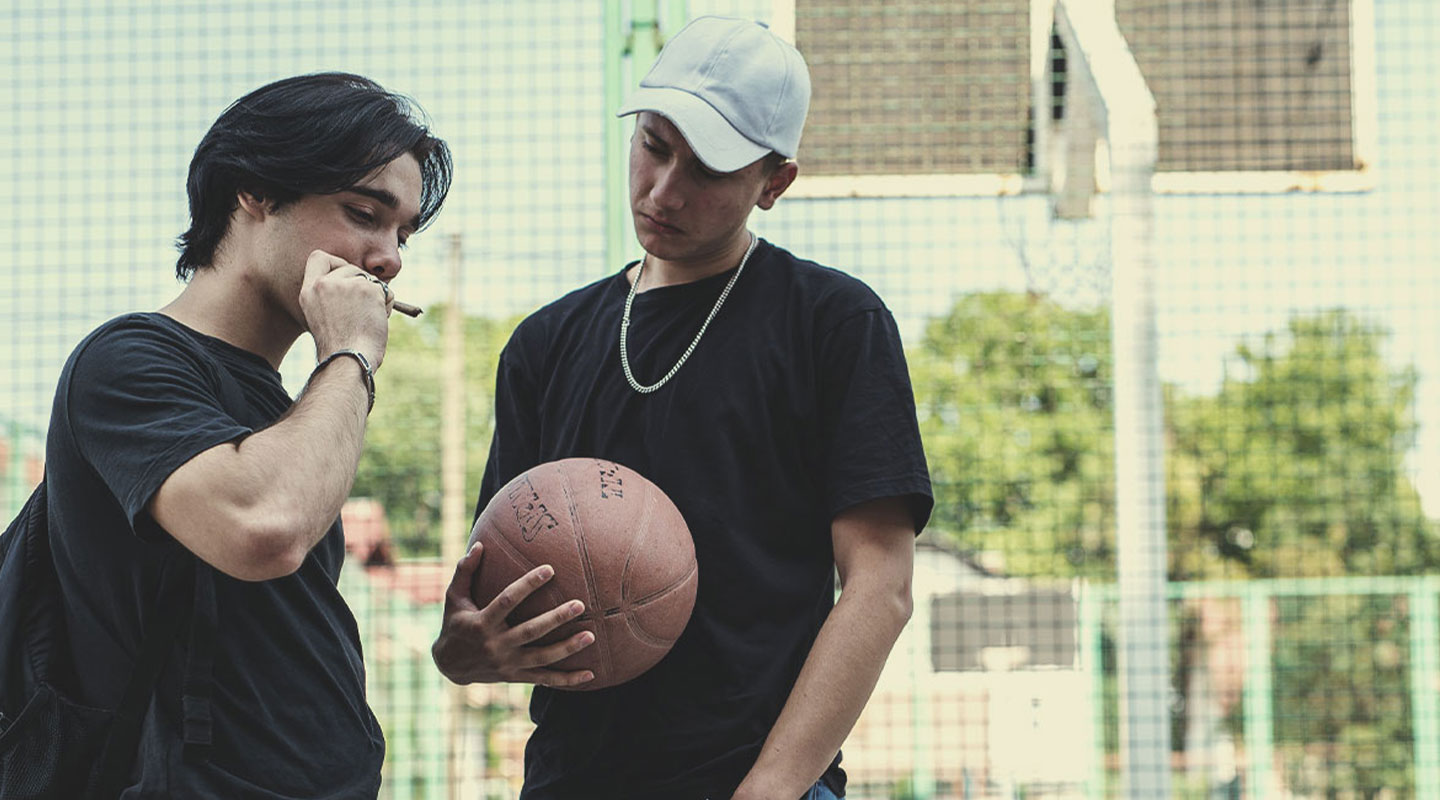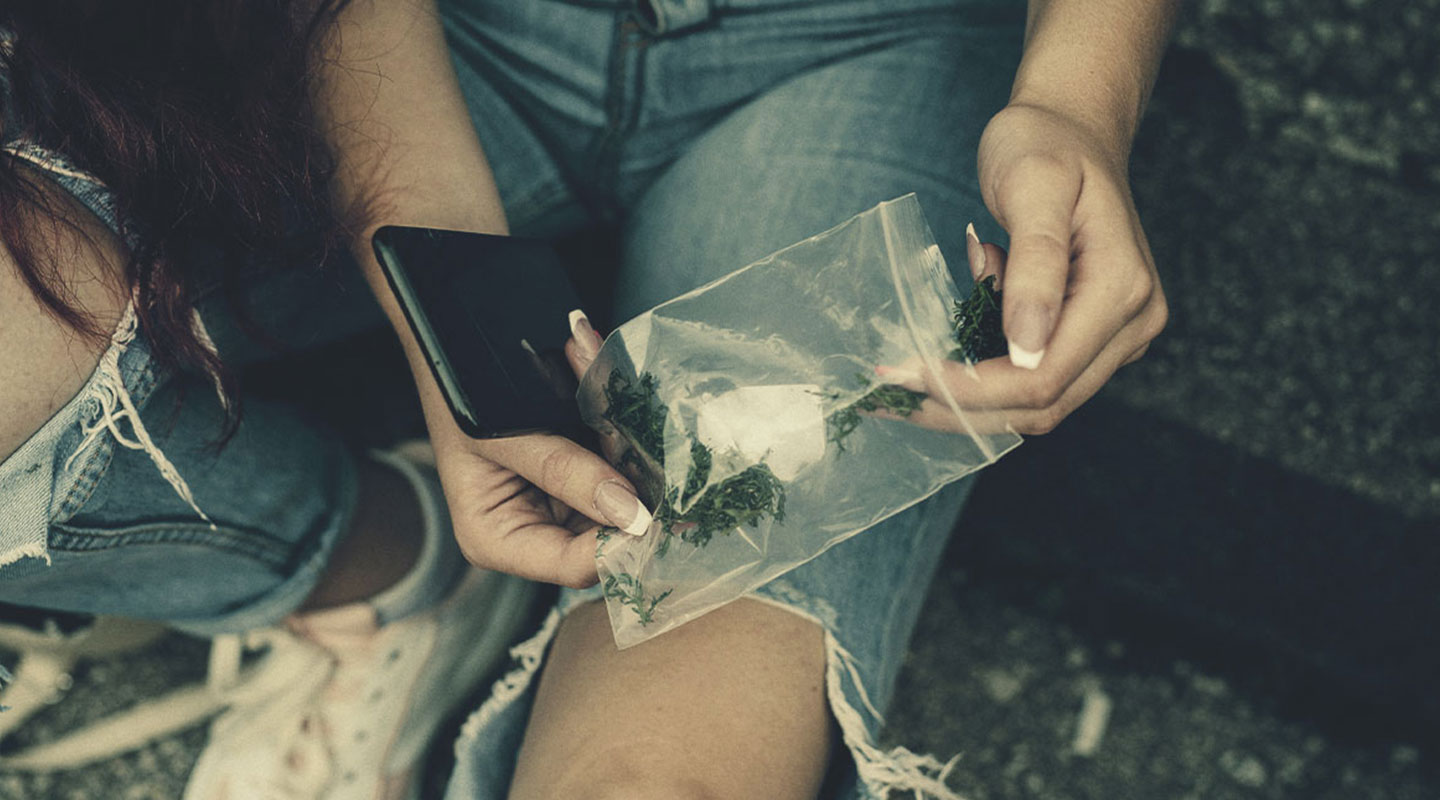.

How and When To Talk to Your Children About Cannabis
There will come a time when you as a parent need to talk to your kids about weed. And it pays to be prepared. If you don't know how to go about it, this article will help to guide you down the right path. It's all about honesty, respect, and education.
Contents:
Along with sex and alcohol, parents need to have a conversation with their children about cannabis. And despite society’s more accepting attitude toward this once-vilified substance, it still poses its fair share of dangers to youths.
Your kids will eventually be introduced to the magic herb through music, movies, and nowadays, social media. This is where you as a parent should step in to provide a proper introduction and correct all forms of misinformation.
Now, depending on the nature of your relationship, this could either be an easy, free-flowing conversation or a challenging one. But through this article, we’re here to show you how to talk to your kids about marijuana.
When To Talk to Your Children About Cannabis
Thanks to digital technology, kids these days can pick up any piece of information with the click of a button. You’d be surprised at the amount of knowledge they may have on certain matters like cannabis, for example.
Ultimately, in terms of when to have the pot talk, it’s your judgment call as a parent. But there is an effective way to navigate these conversational waters.
Treat Cannabis Like Alcohol or Sex
Whether it’s under your watchful eye or not, your kids will be exposed to “taboo” matters like alcohol and sex. It’s more a question of “when” than “how”. And chances are, they’ll be getting their information from pop culture icons that don’t necessarily promote a responsible approach.
Nowadays, the earlier you have these conversations, the better. Explain to your children what these forms of decadence are and why people are eventually drawn to them.
Most importantly, share some cautionary tales, but don’t use scare tactics. You just want them to understand the potential consequences of embodying a reckless attitude. But be real with how you deliver your message. Don’t sugarcoat or oversell.
How To Prepare for Talking to Your Children About Cannabis
We’ve all been kids at one point in our lives. During those carefree days, everything around us was a fascinating discovery. And along the way, we had lots of questions. “What does this do? How does this work? Why are things the way they are?”.
As parents, it’s only a matter of time before we get the same inquisition from our own kids. And if you want to get your point across, it’ll be best to answer them with confidence.


Do Your Research
Even in the age of legalization, cannabis education still isn’t a part of school curriculums. The risks and benefits aren’t talked about in proper detail. At worst, educators opt for the same outdated lectures and classify marijuana as a “dangerous drug” to avoid at all costs.
As a parent, this is where you step in. Of course, you will need to do your research. You don’t need to be a walking ganja encyclopedia, but a general summary would be a good place to start. Talk about the good and the bad, and, as much as possible, try not to lean on either side. Be as objective as you can.
Here’s one vital piece of information to impart: cannabis use is strongly advised against in children. Experts believe that such a substance could potentially be detrimental to their brain development.
If You Use Cannabis, Understand Why
Part of being a responsible cannabis user is knowing your purpose in taking it. Even if you’re partaking just for the sake of getting high, there is a better way to articulate this—whether you invoke its relaxing effects or more holistic benefits.
And indeed, being able to articulate that to your kids is crucial. For one, they will appreciate your honesty. At the same time, they will be able to discern its benefits and drawbacks.
Write Down a List of Points You Want To Cover
Regardless of how old your child is, absorbing information about a recreational substance could be a lot to take in. So if you’re doing this for the first time, write down a list of points you want to cover.
Start with the basics of what cannabis is and how it’s part of nature. You can then go about covering how it affects a person, and why it was once vilified (prejudice, lack of research, corporate interests). Most importantly, talk about the importance of using it with proper discretion (depending on where you live).
Although you may be able to remember these talking points when the time comes, it’s best to actually put pen to paper and organise your thoughts.
Be Prepared To Tackle the Conversation Over Multiple Sessions
Now, even if you organise all of your talking points, you’ll likely be met by interruptions. For one, kids have short attention spans, especially about topics that don’t interest them. And as we mentioned in a previous point, they will ask questions.
Especially if you have an extra-curious kid (which is a great thing), prepare for another session or two. You want everything to be clarified and absorbed before moving on to another topic. Otherwise, you’ll be going around in circles, making it a long-winded conversation.
What To Say to Children About Cannabis
Now, if you’re looking for age-specific strategies for having the marijuana talk with your kids, we’ve got you covered.
Below is a guideline to follow. The language you’ll use will vary, along with the depth of information you’ll reveal. You’ll also notice that the older the child gets, the more the conversation becomes about practical advice on safety.


Young Children (Under 10 Years Old)
At this age, kids will absorb any piece of information you give them. There isn’t much scepticism yet. Whatever you tell them, they will believe.
That said, experts say the topic of cannabis should be approached from a health angle. The ideal message is something along the lines of, “You shouldn’t put anything in your body that could harm you”.
-
When Answering Questions
Now, when they start to ask questions, don’t beat around the bush. Tell it like it is, but in a way that they can comprehend. At some point, they will ask what marijuana is. According to experts, the response should be something like, “It’s a plant that makes you feel different”.
It’s also at this age when you should be going hard on the precautions. First, give them a visual idea of what marijuana looks like in its most popular forms. Next, instruct them to say no to anyone who may offer it to them. Reiterate the part of how it can be dangerous to their health.
-
When Keeping Edibles in the House
When it comes to edibles, keep them out of reach and sight.
Nonetheless, teach your kids to be careful about the goodies they see in the pantry or fridge. If they see a piece of chocolate or a brownie, they should ask permission from an adult first.
Older Children (10–13 Years Old)
Kids in this age range usually know how to use the internet. There’s even a chance that they’ve already come across bits and pieces of information about the magic herb.
But at this point, it’s unlikely that they’re educating themselves with reliable information on cannabis. If you ask them about it, there’s a good chance you’ll be met with an oblivious little face looking right back at you.
For tweens who’ve just discovered the existence of marijuana, conversations should centre mostly on refusing it if offered. Introduce the possibility of peer pressure and how to say no, and reiterate that cannabis isn’t safe for children.
Teenagers (14–19 Years Old)
Teenagers are likely acquainted with marijuana, particularly regarding its potential dangers. They’ve seen ads, read articles, or talked about it with a friend or an adult at school. They may have formulated opinions about it already. Some of them may have even had their first few tries.
But even if they have dabbled, it’s not too late to have a proper discussion. At this age, some parents still hold a strong-enough influence. Your role now is to be present in their lives and make sure they’re not steered down the wrong path. Build that strong relationship and foster open communication. With proper guidance, you can prevent a potentially dangerous situation from spiralling out of control.
Rather than admonishing their use, offer some resources and practical guidance on how cannabis use can make a teenager’s life harder down the line.


Other Important Tips
- Practice active listening: Make them feel that you’re present in the conversation and that they have your undivided attention.
- Keep a neutral stance: Try not to demonise. As teenagers, they will test your limits. Forbidding them from doing something will further push them to do it.
Young Adults (Over 20 Years Old)
At this point, you’ve already done your part as a responsible parent. You’ve provided the necessary information for them to absorb, and have shared precautions.
Many young adults choose to use cannabis recreationally. Some parents are okay with that, while others aren’t. Regardless of which side you’re on, your kids are at an age where they’re old enough to make their own decisions.
Important Reminders and Precautions
That said, your conversations should largely be about safety. Educate them about the dangers of driving while intoxicated, for example.
Most importantly, talk to them about responsible marijuana use. Stress the importance of keeping their recreational use moderate and under control. Discuss the likelihood of dependence and its potential dangers. Remind them of the differences between cannabis and harder drugs, and why they should never cross that line.
Remember that you’re already past the stage of telling them what to do. Your job now is to send those occasional reminders while trusting yourself and how you’ve raised them.
When To Step In
As a parent, you’ll always bear the right to step in if you feel like things are getting out of hand.
Take note of your child’s cannabis use. Has it gotten to a point where they’ve developed an unhealthy dependence? Is it starting to affect their daily lives? Is it interfering with their personal and professional relationships?
If you’ve ticked all of those boxes, it’s time to intervene. Sit them down and have a serious talk. Be firm, but don’t be dismissive of what they’re going through. Any form of antagonism may push them toward worse behaviour, so be sure to show empathy.
Now, if the problem has spun out of control, that’s the time to seek professional assistance.
Other Important Tips
Proper communication is key, and that can’t be stressed enough. Here are some important tips on how to go about these conversations:
- Avoid making judgments at all costs. No good comes out of it, and it may lead to resentment and anger.
- Focus on having a two-way conversation. Lectures are better-suited for young children. Talk to them like adults.
- If you haven’t yet, ask them why they use cannabis, and for how long. Understand their reasons. If it’s for holistic purposes, acknowledge the pros. But at the same time, remind them about the possible dangers of overuse and dependence.
Cannabis Should Be an Ongoing Discussion
During these tender and formative parts of their lives, it’s important to have an ongoing cannabis discussion with your kids. Yes, society is more tolerant with its stance on cannabis use these days. However, attitudes toward the substance are constantly changing.
Especially in this era of misinformation, parents should be the guiding light to their kids. In regard to cannabis, keep the conversation going. Make sure they know they can come to you if they need to. That’s one of the best ways to ensure they’re headed down the right path.








































